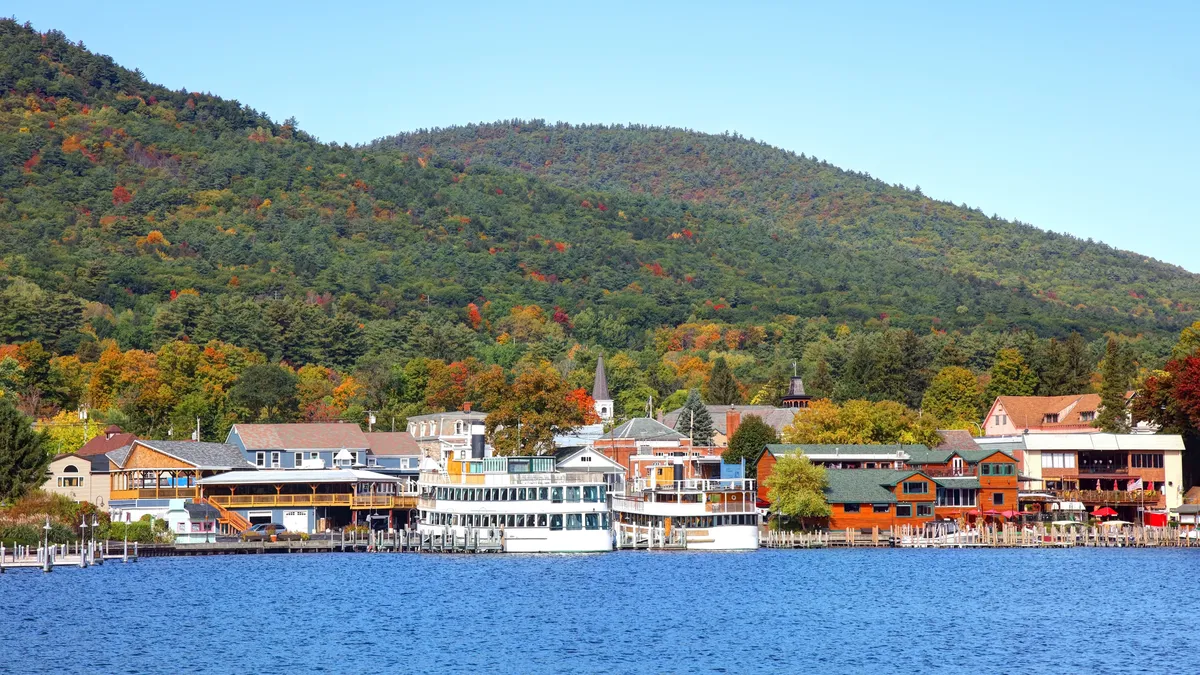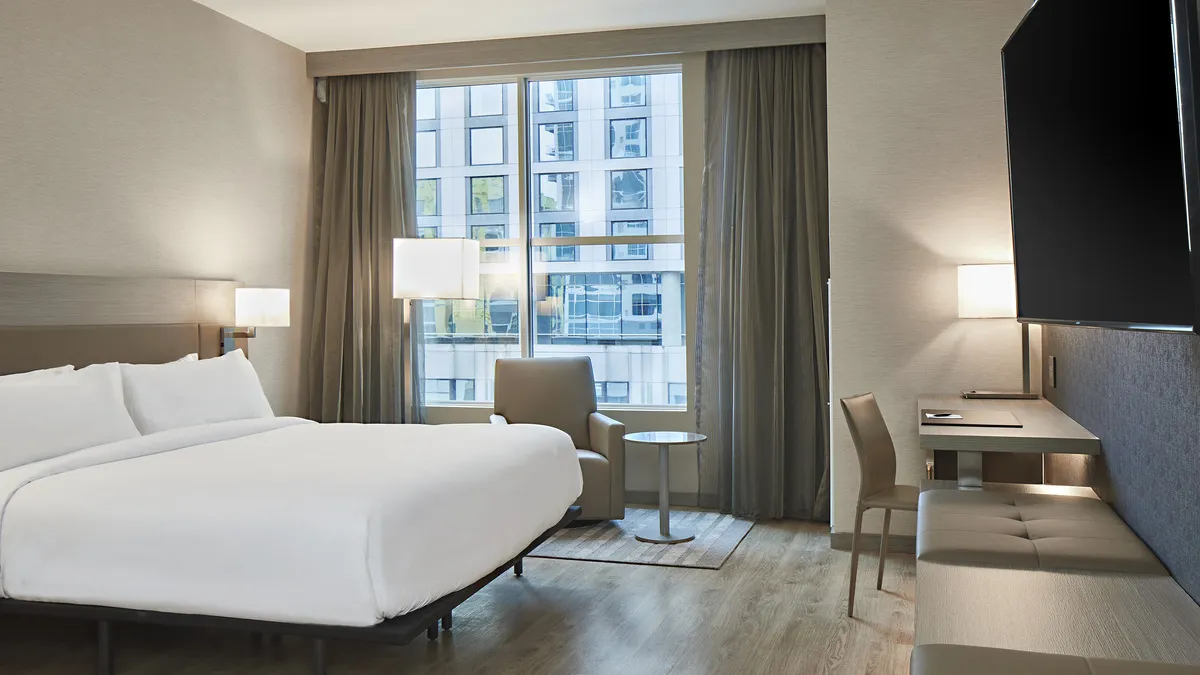When President Donald Trump’s tariffs sent markets reeling last week, travel and hospitality companies were among those impacted.
The Dow Jones Hotel Index saw hotel company shares slump 6% on average the day following the tariffs’ rollout on April 2, Forbes reported. And that news followed major airline companies slashing their forecasts the month prior, also according to Forbes.
But hotels have yet to feel the full brunt of new economic policies, especially as their impact on travel and employment levels remains to be seen, experts told Hotel Dive.
“Putting it all together, there's not a lot of good news [for hotels],” said David Sherwyn, the John and Melissa Ceriale Professor of Hospitality Human Resources at Cornell University. “It's not going to be a pleasant ride, and this is after a real struggle with the pandemic.”
Hotel Dive spoke to Sherywn and other hospitality industry professionals about how tariffs could impact the industry — and why this economic challenge will be different from previous ones hotels have faced.
Travel impacts
Tariffs will likely impact travel volumes, though just how much is hard to say.
Even before tariffs were announced, Trump’s policies “produced a negative sentiment shift toward the U.S. among international travelers,” according to a Tourism Economics release. The firm predicted that a correlated decline in international travel to the U.S. would be strongest in 2025, “with persisting degrees of impact throughout the remainder of Trump’s second term.”
“Hotels make a lot of money off international travel,” Sherwyn said. And while hotels in major cities could be particularly impacted by a potential decline in European or Asian travelers, smaller destinations in the northern U.S. could be disproportionately hurt by a lack of Canadian visitors, he added.
“Lake George, New York, is filled with French Canadians, as is Old Orchard Beach, Maine,” he said. “Will Canadians be coming into the States this summer? Who knows.”
Canadian travel to the U.S. is “plummeting” amid anger over tariffs, with Tourism Economics telling The Washington Post on April 3 that some 4 million fewer Canadians would visit the U.S. this year.
Meanwhile, domestic travel — spanning leisure, business and group segments — may also be hit if tariffs impact traveler budgets.
As companies across industries contend with a more chaotic stock market, “Are they going to have that big conference?” Sherwyn said.
“Economic uncertainty is shaking up the hotel industry's financial playbook. On the operations side, it's all about doing more with less.”

Philippe Ziade
CEO and founder, Las Vegas’ Otonomus Hotel
Domestic group and business travel have rebounded in recent quarters, but tariffs threaten to slow or reverse the trend. That could be particularly problematic for markets like San Francisco and Portland, Oregon, which still have not recovered post-pandemic in terms of group business, Sherwyn noted.
Business travel could also lessen as companies opt for virtual meetings and events to save costs, he added.
Compounding labor challenges
Tariffs could also exacerbate labor issues hotels were already dealing with.
Even before the April tariffs were rolled out, U.S. hotel staffing was projected to remain “well below” pre-pandemic levels in 2025, according to the American Hotel & Lodging Association. And as the hospitality labor market has tightened, hotels have raised wages and other compensation, representing a 25.6% increase over 2019 levels, per AHLA.
While employment costs are already high, tariffs will likely raise prices for costs in other categories, Sherwyn noted.
“Hotels buy a lot of stuff,” he said, most of which — such as in-room items like towels and linens — aren’t sold back to the guests.
“Economic uncertainty is shaking up the hotel industry's financial playbook,” said Philippe Ziade, CEO and founder of Las Vegas’ Otonomus Hotel. “On the operations side, it's all about doing more with less.”
“Low rates and low occupancy are a really bad combo.”

David Sherwyn
John and Melissa Ceriale Professor of Hospitality Human Resources at Cornell University
Hotels and resorts “that can offer a range of experiences at various price points,” he added, “will likely weather the storm best.”
A bad combination
If heightened operating costs collide with lessened demand, hotels’ options for responding to the economic crisis will shrink.
If hotels pass on costs to guests through higher room rates, they will likely take a hit on occupancy, Sherwyn added. Conversely, to sell more rooms, hotels may have to reduce their prices to far lower than they’re comfortable with.
And even if a hotel achieves high occupancy, could it even operate at the same level of service, given labor shortages? That strategy could backfire, he added.
“Low rates and low occupancy are a really bad combo,” he said.










